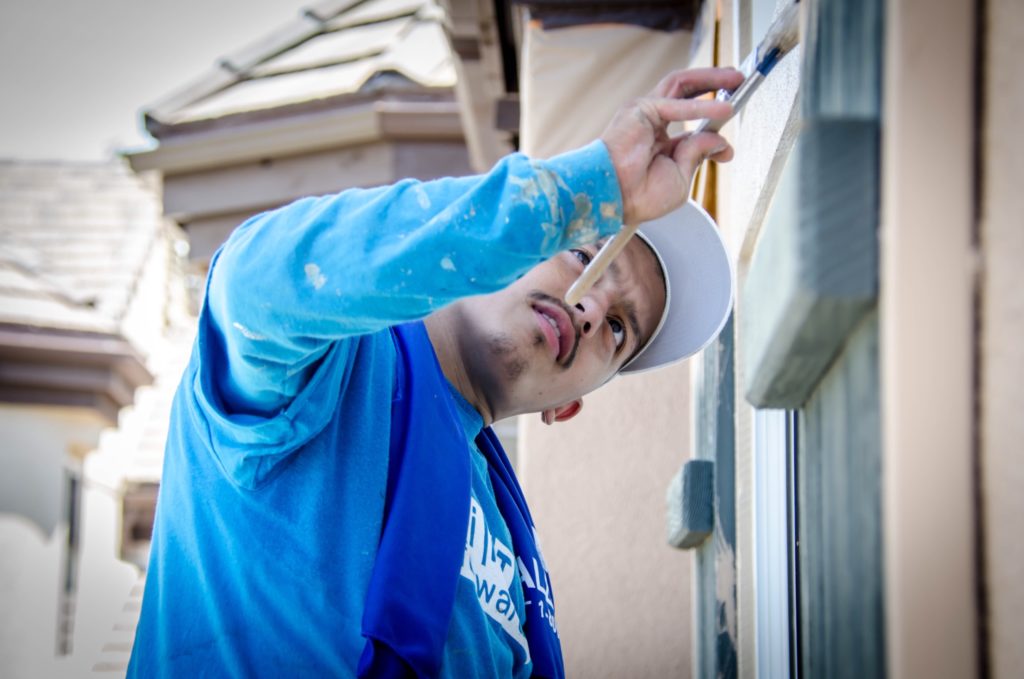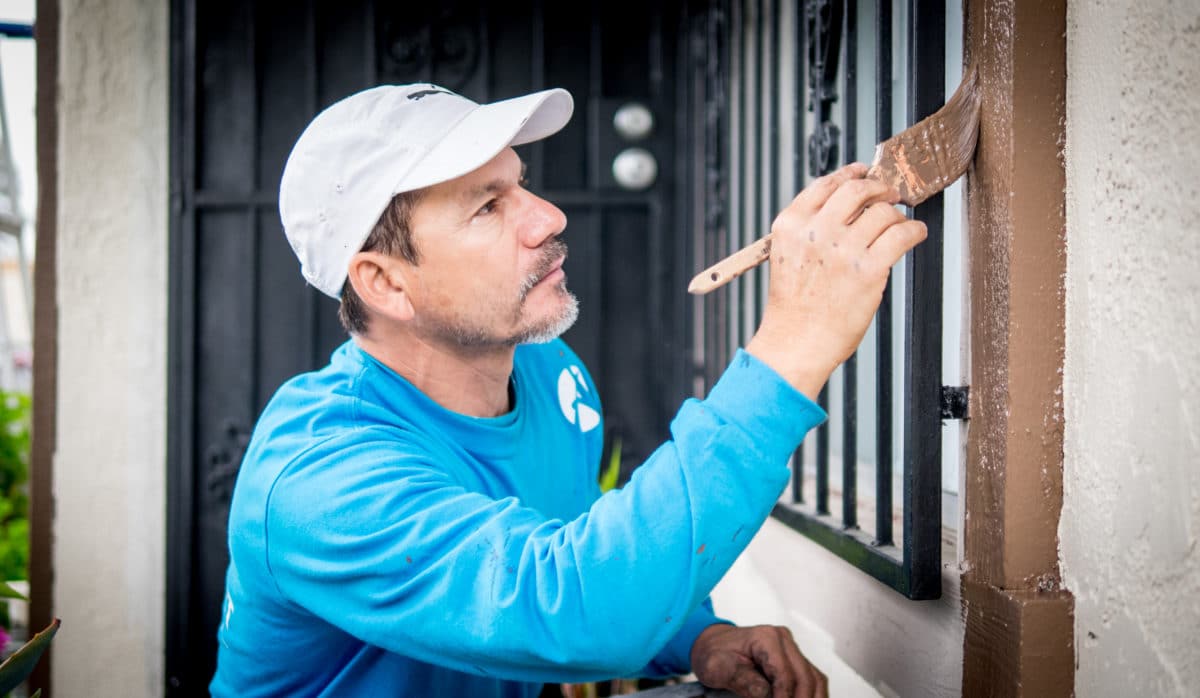
Paint has huge power to transform the space of your home, office, or business — for years to come. But only if you hire the right painting contractor. The wrong one will cost you money and loads of frustration. Painting your home is a big expense, but don’t make the mistake of choosing your contractor based only on saving money. You might end up choosing an unlicensed, inexperienced, or unqualified painter that will leave you with a job that needs re-doing far too soon.
[zumper_inline_cta title=”Manage your rental on Zumper” button_text=”Get Started” button_link=”/manage?utm_source=inline&utm_medium=cta&utm_campaign=blog-cta”]Consider these seven things before you hire a painting contractor.
1. Does the Contractor Have Insurance?
It might feel a bit strange, but put those feelings aside and confirm that your contractor has insurance before doing business with them. Remember that the contractor is working at your house or property. While you may have insurance to cover accidents that happen on your property, it is the contractor’s responsibility to have adequate insurance as well.
Don’t hire a contractor unless they have comprehensive business liability with a minimum of a million dollar limit. This protects your property from damage by the contractor.
Likewise, check that your contractor is also carrying workmen’s compensation to protect the workers while they’re on your property. This protects you from having liability for any accidents.
Don’t rely on your homeowner’s insurance. Ask for proof of both insurances before agreeing to hire the contractor.
2. Is the Contractor Properly Licensed?
Some licenses are for only residential or only commercial properties. Others are for small jobs, but not big. Make sure your contractor carries the proper licensing for your property and the scope of your job. You can search for this online, and while you’re at it, check to see if the contractor has any unresolved complaints.
3. Does the Contractor Provide References?
You deserve to know what you’re getting into, so it’s a good idea for you to talk to past clients of the contractor. A contractor shouldn’t balk when you ask for references. If they do, consider that a red flag. A company that is proud of their work will be happy to provide you with references. Some may even give those to you before you ask. It’s completely reasonable to expect references with your proposal.
Once you have the references, talk to someone who recently had work done so you can get a good feel for how the company operates now. Also choose to talk to someone who had work done a while ago, so you can get a good feel for how well the contractor’s techniques hold up.

4. Will You Get a Warranty or Guarantee?
A company that thoroughly preps each job, uses quality paint, and doesn’t cut corners will stand behind their work. One- to three-year warranties are common in reputable companies. Make sure the warranty covers both labor and material in the case of a defect. Understand the exclusions, and make sure you get the warranty in writing.
5. Is the Company a Member of the Better Business Bureau?
When a painting company is a member of the Better Business Bureau or other trade associations, it’s a good sign that the company is stable. Trade association memberships indicate that the company is also committed to their trade and providing the best quality possible.
6. What Materials and Techniques Will Be Used?
It’s important to have your contractor specify — in writing — the materials that will be used before you hire the company. Sub-par materials won’t last as long, won’t hold up to weathering or wear and tear, and won’t cover up imperfections as well.
Don’t choose a contractor who is opting for cheap products. In painting, it almost always pays to pay more. That’s because the more-expensive paints and materials are filled with ingredients that make the paint last longer.
In addition, make sure your contractor intends to do solid prep work. Ask how they will repair current damage, like holes, flaking, mildew, and rough edges, before they being painting.

7. Are the Employees Safe and Trained?
You’ll have several people in and out of your house or business while your painting job is taking place. It’s critical that you can trust these people. Does the contractor run criminal background checks? What is the name of the company that performs the background checks?
Will the contractor be using employees or subcontractors? It’s a good idea to steer clear of a contractor who uses subcontractors, as the contractor won’t be able to vouch for their safety, training, or quality of work.
Additionally, does the contractor provide ongoing training of all employees, keeping everyone updated on the new and best techniques and procedures?
Ultimately, whoever you hire is going to be a part of your life for an extended amount of time. You want to choose someone who you trust, who you get along with, who will follow through on what they say they will do, and who will do a beautiful and lasting job. When you take your time getting answers to the above questions, your chances of hiring a great contractor will increase.



